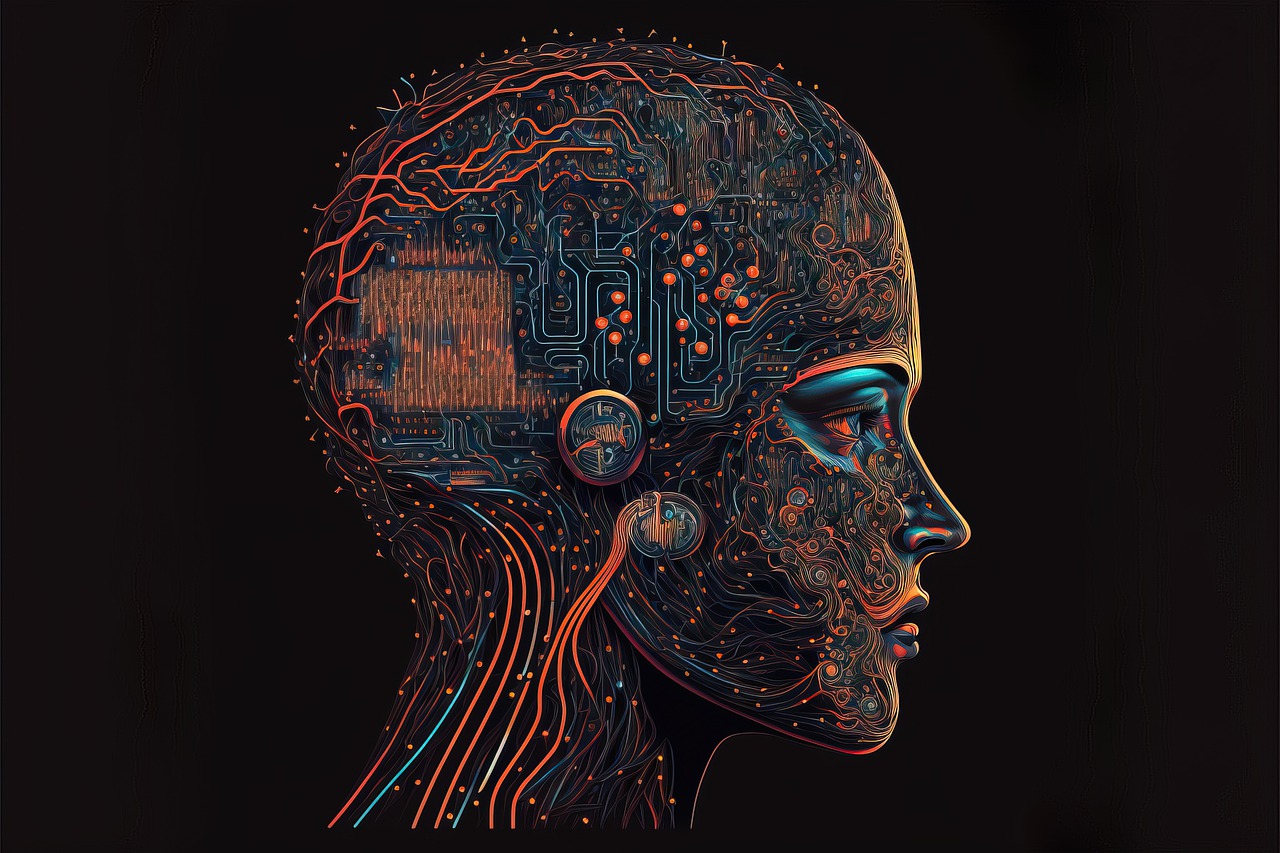Artificial Intelligence (AI) has become the linchpin of modern business marketing, a technological marvel reshaping the way companies engage with their audience. This article explores the multifaceted dimensions of “Business Marketing AI,” covering its evolutionary journey, key advantages, challenges, real-world applications, and future prospects.
1. Introduction to Business Marketing AI
In the dynamic digital landscape, the integration of AI in marketing strategies is no longer a choice but a necessity. As businesses strive to create meaningful connections with their target audience, AI emerges as a powerful ally, offering insights, automation, and unparalleled efficiency. According to a recent study by Gartner, 85% of customer interactions will be managed without human intervention by 2025, underlining the pivotal role of AI in the marketing ecosystem.
The adoption of AI in marketing signifies a paradigm shift, empowering businesses to tailor their approaches based on data-driven insights. Whether it’s understanding consumer behavior, optimizing content delivery, or refining targeting strategies, AI lays the groundwork for more effective and personalized marketing campaigns.
2. The Evolution of AI in Marketing
The evolution of AI in marketing is akin to a technological odyssey, starting from basic applications and evolving into sophisticated tools capable of intricate data analysis. A noteworthy milestone is the increased integration of machine learning algorithms, enabling marketers to predict consumer preferences with unprecedented accuracy. A survey conducted by Forbes Insights reveals that 61% of marketers believe AI is the most crucial aspect of their data strategy, illustrating its central role in modern marketing practices.
This evolutionary journey has not only streamlined marketing processes but has also opened new frontiers, such as predictive analytics, automated content generation, and hyper-personalized customer experiences. Businesses that embrace this evolution are better positioned to navigate the complexities of the contemporary market, staying ahead of the competition.
3. Key Benefits of Implementing AI in Business Marketing
Enhanced Customer Targeting
The essence of effective marketing lies in reaching the right audience with the right message. AI facilitates this precision through advanced customer targeting. By analyzing vast datasets encompassing demographics, preferences, and online behaviors, businesses can tailor their campaigns to resonate with specific customer segments. According to a study by McKinsey, companies utilizing AI for customer targeting experience a 10–20% increase in customer engagement.
Improved Personalization
Personalization has become synonymous with exceptional customer experiences. AI takes personalization to new heights by dynamically adjusting content, recommendations, and offers based on individual preferences. This not only enhances customer satisfaction but also contributes to increased conversion rates. A report by Accenture Interactive found that 91% of consumers are more likely to shop with brands that provide relevant offers and recommendations.
4. Popular AI Tools for Business Marketing
Chatbots
AI-powered chatbots have become indispensable in modern marketing strategies. These virtual assistants enhance customer interactions by providing instant responses and assistance. According to a survey by HubSpot, businesses incorporating chatbots witness a 48% increase in revenue per chat hour. The real-time engagement offered by chatbots not only improves customer satisfaction but also streamlines communication, allowing businesses to address inquiries promptly.
Predictive Analytics
Predictive analytics, fueled by AI, enables businesses to forecast future trends with a high degree of accuracy. This empowers marketers to make informed decisions, optimizing their strategies for maximum impact. A case study by Salesforce indicates that companies using predictive analytics experience a 73% higher click-through rate on their campaigns. This tool not only identifies potential opportunities but also helps mitigate risks, providing a competitive edge in the market.
Automated Email Campaigns
AI-driven automation has revolutionized email marketing, making campaigns more targeted and efficient. Automated email campaigns analyze user behavior, sending personalized content at optimal times. According to a study by DMA, automated email campaigns result in a 14.5% increase in click-through rates and a notable reduction in bounce rates. This underscores the effectiveness of AI in crafting compelling and timely email content that resonates with the audience.
5. Overcoming Challenges in Adopting AI for Marketing
Integration Issues
While the benefits of AI in marketing are substantial, businesses often face challenges in seamlessly integrating AI into existing marketing systems. According to a survey by Adobe, 37% of marketers cite integration difficulties as a significant obstacle. Overcoming this challenge requires a strategic approach, ensuring that AI seamlessly complements and enhances the existing marketing infrastructure.
Privacy Concerns
The widespread use of AI in marketing raises legitimate privacy concerns among consumers. A Deloitte survey reveals that 78% of consumers are concerned about the potential misuse of their data. To address this, businesses must prioritize transparency, clearly communicating how AI processes and utilizes customer data. Implementing robust data protection measures builds trust and ensures ethical AI practices.
Initial Implementation Costs
While the long-term benefits of AI in marketing are evident, businesses may face initial implementation costs. A study by PwC indicates that 54% of businesses view high costs as a barrier to AI adoption. However, the return on investment (ROI) is substantial, with AI-driven marketing strategies contributing to revenue growth and efficiency gains over time.
6. Real-world Examples of Successful AI Marketing Campaigns
Examining real-world success stories provides valuable insights into the tangible impact of AI in marketing. One notable example is the AI-powered recommendation engine used by Netflix. The platform analyzes user viewing habits and preferences, offering personalized content recommendations. This approach has significantly contributed to customer retention, with a reported 75% of user activity on Netflix attributed to these AI-driven suggestions.
Another exemplar is Spotify, leveraging AI to curate personalized playlists based on user preferences. The music streaming giant’s algorithms analyze listening habits, creating tailored playlists that enhance user satisfaction and engagement. Such success stories underscore the transformative potential of AI in crafting targeted and compelling marketing initiatives.
7. Future Trends in Business Marketing AI
The future of Business Marketing AI holds exciting prospects, with emerging trends set to redefine how businesses connect with their audience. One notable trend is the increasing integration of AI with augmented reality (AR) and virtual reality (VR) technologies. According to a report by Statista, the AR market is projected to reach $70-75 billion by 2023. AI’s role in enhancing immersive customer experiences through AR and VR is poised to revolutionize marketing strategies, providing a new dimension to product demonstrations, virtual try-ons, and interactive brand storytelling.
Another significant trend is the rise of AI-powered voice search optimization. With the proliferation of voice-activated devices like smart speakers and virtual assistants, businesses are adapting their marketing strategies to align with voice search trends. ComScore predicts that by 2022, voice searches will account for 50% of all online searches. Incorporating AI to understand and respond to natural language queries will be pivotal for businesses aiming to capture the growing audience engaged in voice-activated search.
8. The Impact of AI on Small and Large Businesses
AI’s impact on businesses is nuanced, varying between small enterprises and large corporations. For smaller businesses, AI offers a leveling playing field by providing cost-effective solutions for marketing automation, customer engagement, and data analytics. A study by Deloitte found that 38% of small businesses are already leveraging AI, citing improved efficiency and competitiveness as key benefits.
On the other hand, large enterprises harness AI for more extensive data analytics, personalized customer experiences, and sophisticated automation. According to a McKinsey report, 80% of enterprises have implemented or are planning to implement AI in their marketing strategies. The scalability of AI allows large businesses to analyze vast datasets, derive actionable insights, and execute complex campaigns with precision.
9. Tips for Choosing the Right AI Marketing Strategy
Selecting the right AI marketing strategy is critical for maximizing its benefits. Firstly, businesses need to align AI initiatives with their overall marketing goals. Whether the objective is enhancing customer engagement, improving lead generation, or optimizing conversion rates, tailoring AI strategies to specific outcomes ensures a focused and impactful implementation.
Additionally, businesses should prioritize scalability and flexibility when choosing AI solutions. As the business landscape evolves, the chosen AI tools should seamlessly adapt to changing requirements. Consideration of user-friendliness and compatibility with existing systems is essential to facilitate a smooth integration process.
10. Case Studies: Companies Excelling with AI in Marketing
Examining case studies of companies at the forefront of AI in marketing provides invaluable insights into the practical applications and success stories. One standout example is Amazon, a pioneer in leveraging AI for personalized recommendations. The e-commerce giant employs machine learning algorithms that analyze user browsing and purchase history, enabling precise product recommendations. This strategy contributes significantly to Amazon’s impressive conversion rates and customer retention, demonstrating the transformative impact of AI in driving sales and enhancing user experience.
Another noteworthy case study is Starbucks, which integrates AI into its mobile app for customer engagement. The app employs AI to analyze user preferences, order history, and location data to offer personalized promotions and discounts. This tailored approach not only boosts customer loyalty but also increases the efficiency of Starbucks’ marketing efforts, showcasing the adaptability of AI in enhancing the customer journey.
11. The Role of AI in Social Media Marketing
AI’s role in social media marketing is pivotal, influencing various aspects of content distribution, audience targeting, and engagement metrics. One key application is the use of AI algorithms for sentiment analysis. Platforms like Facebook and Twitter utilize AI to analyze user comments, posts, and interactions to gauge the sentiment around brands. This enables businesses to adapt their strategies in real-time, responding to trends and sentiment shifts.
Additionally, AI-driven chatbots play a crucial role in social media customer service. These virtual assistants respond to customer queries, provide information, and even facilitate transactions. According to a report by Social Media Today, businesses that implement AI chatbots on social media witness a 20% increase in customer satisfaction, showcasing the effectiveness of AI in enhancing the social media customer experience.
12. Ethical Considerations in AI Marketing
As businesses embrace AI in marketing, ethical considerations become paramount. One ethical concern is the potential for bias in AI algorithms, leading to discriminatory outcomes. A study by MIT Technology Review found that biased algorithms can perpetuate existing social inequalities. Businesses must prioritize fairness and transparency in algorithmic decision-making, actively addressing and mitigating biases.
Another ethical consideration is the responsible use of consumer data. The increasing reliance on AI in data analysis raises concerns about data privacy and security. It is imperative for businesses to adopt robust data protection measures, comply with regulations, and communicate transparently with customers about how their data is used.
13. How AI Influences Consumer Behavior Analysis
Understanding consumer behavior is a cornerstone of effective marketing, and AI plays a pivotal role in enhancing this understanding. AI-powered analytics sift through vast amounts of data to discern patterns, preferences, and trends in consumer behavior. A study by McKinsey highlights that businesses leveraging AI for consumer behavior analysis experience a 25% increase in marketing ROI. This underscores the transformative impact of AI in deciphering complex consumer insights that traditional methods might overlook.
Moreover, AI facilitates predictive modeling, allowing businesses to anticipate future consumer behaviors. By analyzing historical data and identifying correlations, AI algorithms can forecast trends, enabling marketers to proactively tailor their strategies. This predictive capability is a game-changer, empowering businesses to stay ahead in a dynamic market environment.
14. Balancing AI with Human Touch in Marketing
While AI brings unparalleled efficiency to marketing, maintaining a balance with the human touch is crucial for building authentic connections with customers. AI-driven automation streamlines repetitive tasks, allowing marketers to focus on creative and strategic aspects. However, it’s essential to infuse campaigns with human elements, ensuring that the brand resonates emotionally with the audience.
A study by Harvard Business Review found that 64% of customers believe that businesses have lost touch with the human side of customer experience due to excessive reliance on technology. Businesses must, therefore, leverage AI as an enabler rather than a replacement for human interaction. Personalizing communication, incorporating genuine storytelling, and responding empathetically to customer feedback contribute to striking the right balance between AI and the human touch.
Business Marketing AI represents a seismic shift in how businesses engage with their audience. From personalized customer targeting to predictive analytics and ethical considerations, AI permeates every facet of modern marketing. The key lies in strategic implementation, understanding the nuances of AI tools, and maintaining a delicate equilibrium between automation and human connection.
As we navigate the ever-evolving landscape of AI in marketing, businesses must stay agile, adapting their strategies to harness the full potential of this transformative technology. The future holds exciting possibilities, and those who embrace AI judiciously will undoubtedly lead the way in shaping the marketing landscape.




